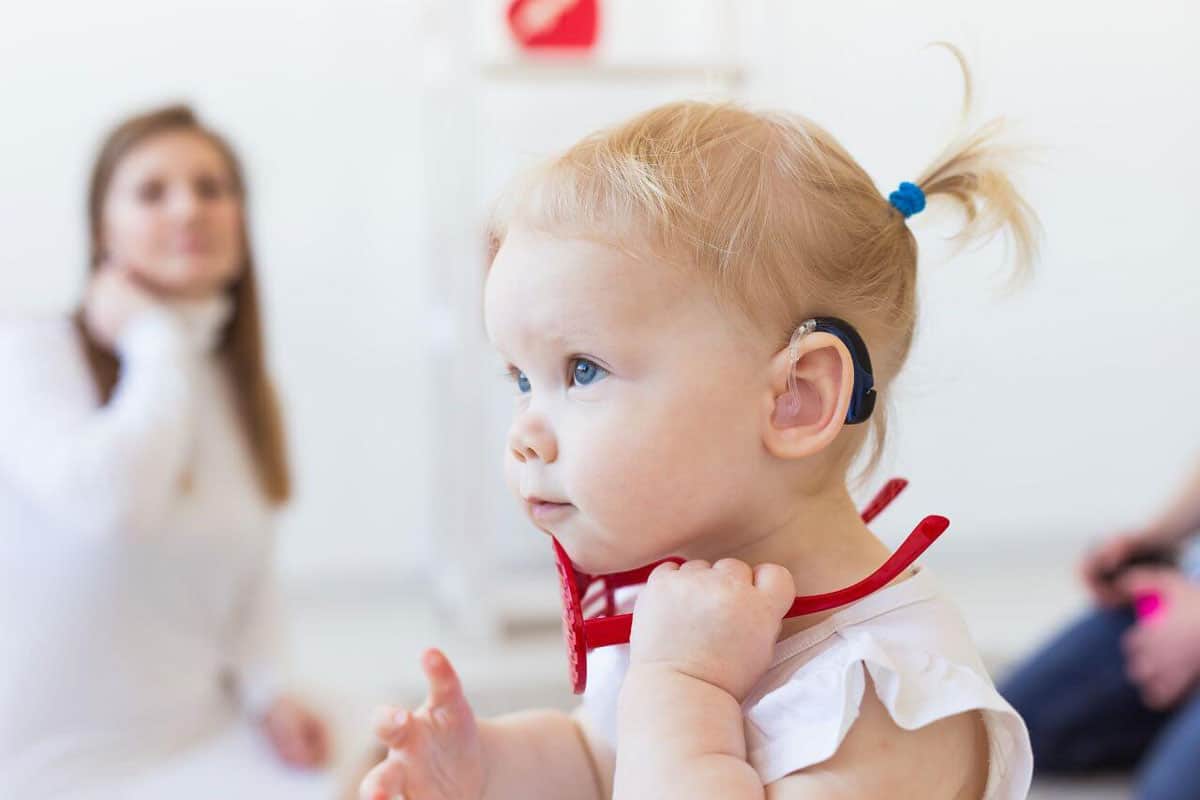Blog
Blog
What you need to know about hearing loss in toddlers

Hearing loss can happen at any age. However, children with impaired hearing may struggle to develop speech, language and social skills. According to Statistics Canada, eight per cent of kids and teens between the ages of six and 19 have moderate to severe hearing loss. Here’s what you need to know about hearing loss in children.
Causes of hearing loss in children
Due to genetic factors, some babies are born with sensorineural hearing loss (SNHL). However, others develop SNHL as infants and toddlers. SNHL occurs when the inner ear or auditory nerve structures are damaged. There are various causes of sensorineural hearing loss, including:
- Serious head injuries
- Exposure to loud noises
- Infections like meningitis, measles, mumps and whooping cough
- Untreated or frequent ear infections
Children may have hearing loss in one ear, called unilateral sensorineural hearing loss. If a child has hearing loss in both ears, the condition is called bilateral sensorineural hearing loss.
Signs of hearing loss in children
Hospitals routinely perform newborn hearing screenings on infants in the first day or two after birth. However, sometimes newborns who pass these hearing screenings begin to exhibit signs of hearing loss as they get older. Here are some red flags that could indicate your toddler or child has hearing loss:
- They don’t startle at loud noises by one month of age
- They don’t turn to the source of a sound by three to four months of age
- Their speech is delayed or hard to understand
- They can’t say single words by 12 to 15 months of age
- They can’t say five to 10 words by 18 months of age
- They can’t put two to three words together at two years of age
- They don’t always respond when called
- They have trouble holding their head steady or are slow to sit or walk unsupported
If you notice a delay in any of these milestones, your child may have hearing loss. You should visit your doctor or audiologist for a comprehensive hearing screening as soon as possible.
Treatments for hearing loss in children
No single treatment is the answer for every child. Fortunately, there are many options to help children with hearing loss, including:
- Hearing aids. Children with mild to profound hearing loss can be fitted with hearing aids between three and six months. Behind-the-ear (BTE) hearing aids are best for young children because they can easily be adjusted to growing ears. They’re also durable and easy to take on and off. The latest models even wirelessly connect to devices like smartphones, tablets and laptops to deliver streamed sound directly through the hearing aid.
- Cochlear implants. Doctors typically consider cochlear implants for children with severe to profound hearing loss in both ears. A cochlear implant is a surgically placed device that turns sound vibrations into electrical signals. The brain translates these signals into recognizable sounds. Unlike hearing aids, cochlear implants don’t make sounds louder. They send sound signals directly to the hearing nerve.
Lastly, children can also use FM/DM systems and other assistive devices to help improve their hearing and quality of life.
Hearing specialists in Alberta
If you think your toddler has hearing loss, the audiologists at Soundwave Hearing Care can help. We offer comprehensive hearing tests and auditory processing assessments to get to the root of the problem. Contact us at one of our locations in Calgary, Lethbridge, High River or Grande Prairie to get more information about our products and services.
All the blogs are reviewed and edited by our clinic's lead audiologist, Dr. Anne Wooliams. Dr. Woolliams is an experienced audiologist specialized in pediatric audiology, auditory processing, and tinnitus/sound sensitivity therapy. She is dedicated to providing top-notch hearing care and helping her clients improve their language and communication abilities. Dr. Woolliams' expertise in literature and linguistics, combined with her passion for helping people improve their language and communication, make her an incredibly valuable asset in the field of audiology. Learn more about Dr. Woolliams.
